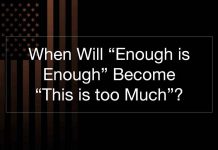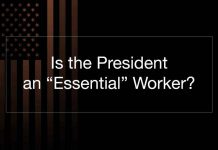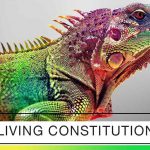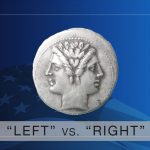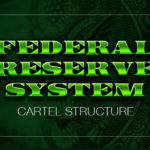Last Updated on January 17, 2021 by Constitutional Militia
One cannot hold to a fanciful, romantic, or even partially erroneous interpretation of the Constitution and nevertheless expect to be able to use the Constitution effectively to protect his rights. For his opponents will inevitably expose the flaws in his position and exploit them against him. Nowhere is this more true than with respect to the right of the people to keep and bear arms.
Most defenders of that right begin and end with the Second Amendment: “A well regulated Militia, being necessary to the security of a free State, the right of the people to keep and bear Arms, shall not be infringed.” Inasmuch as the Second Amendment does say that “the right of the people to keep and bear Arms, shall not be infringed”, this reliance is not illogical. Less explicable, though, is why so many who advocate that right under color of that part of the Second Amendment nonetheless exclude altogether from their consideration the preceding companion language, “[a] well regulated Militia, being necessary to the security of a free State”. Why rely on only a part, but not the whole?
Often, the reason advanced follows these lines:
One must wonder, however, why people today believe that such an argument can be valid, when obviously the Founding Fathers—who themselves explicitly conjoined the phrases “[a] well regulated Militia, being necessary to the security of a free State” and “the right of the people to keep and bear Arms, shall not be infringed” in the Second Amendment—subscribed to no such theory of separation in thought, nor consequentially in action, either. Certainly, “[i]t cannot be presumed, that any clause in the constitution is intended to be without effect”. Marbury v. Madison, 5 U.S. (1 Cranch) 137, 174 (1803). See also Myers v. United States, 272 U.S. 52, 151-52 (1926); Knowlton v. Moore, 178 U.S. 41, 87 (1900); Blake v. McClung, 172 U.S. 239, 260-61 (1898); Hurtado v. California, 110 U.S. 516, 534 (1884).
The Founding Fathers, of course, were not writing on a clean slate. All of pre-constitutional American history as well confirms this plain linguistic evidence. From the settling of the first Colonies in the mid-1600s, “the right of the people to keep and bear Arms” was everywhere and always coincident with a duty of the people, as individuals, to keep and bear arms for service (actual or potential) in their Colonial and then State Militia. Indeed, it is impossible to read the dozens of Colonial and State Militia Acts of the pre-constitutional period—in basic form and content strikingly similar to one another, from New Hampshire in the North to Georgia in the South—without concluding that the right and the duty to keep and bear arms were then—and, absent amendment of the Constitution, remain today—two sides of the selfsame coin. Nowhere will a researcher find a body of Colonial or early State laws explicitly recognizing, protecting, and even enabling the right of individuals to keep and bear arms outside of the context of the duty of each individual to keep and bear arms.
Therefore, anyone conversant with this history—which forms the primary legal basis for “the right of the people to keep and bear Arms”. But was Hamilton correct that “no power is given [in the original Constitution] by which restrictions may be imposed”? Everyone who pays attention to the issue of “gun control” is familiar with the “gun controllers'” contentions that: “bear Arms”—must question the practicality, and worry about the possible pitfalls, of the theory that reliance solely upon the second phrase of the Second Amendment can secure that right. “‘In expounding the Constitution of the United States, every word must have its due force and appropriate meaning; for it is evident from the whole instrument, that no word was unnecessarily used, or needlessly added. * * * Every word appears to have been weighed with the utmost deliberation, and its force and effect to have been fully understood.'” Williams v. United States, 289 U.S. 553, 572-73 (1933). That being so, one hoping to rely on the Second Amendment dissects it at his peril.
Moreover, under present conditions, one who hopes to secure “the right of the people to keep and bear Arms” relies exclusively on the Second Amendment itself at his peril. In The Federalist No. 84, Alexander Hamilton warned that all bills of rights were not only
“unnecessary in the proposed Constitution, but would even be dangerous. They would contain various exceptions to powers not granted; and, on this very account, would afford a colorable pretext to claim more than were granted. * * * Why, for instance, should it be said that the liberty of the press shall not be restrained, when no power is given by which restrictions may be imposed? * * * [S]uch a provision * * * would furnish, to men disposed to usurp, a plausible pretense for claiming that power. * * * This may serve as a specimen of the numerous handles which would be given to the doctrine of constructive powers, by the indulgence of an injudicious zeal for bills of rights.”
Howsoever Hamilton himself may be justly criticized as an advocate of too powerful a central government and of too many “constructive powers”, on this point he has proven all too prescient. “Why”, one may ask with him, “should it be said that the [right of the people to keep and bear arms] shall not be [infringed], when no power is given by which restrictions may be imposed? * * * [S]uch a provision * * * would furnish, to men disposed to usurp, a plausible pretense for claiming that power.” And so Hamilton’s prediction has become America’s reality—with “men disposed to usurp” today using the very existence of the Second Amendment as a “handle[ ]” and “a plausible pretense for claiming th[e] power” to do precisely what the Amendment prohibits.
But was Hamilton correct that “no power is given [in the original Constitution] by which restrictions may be imposed”? Everyone who pays attention to the issue of “gun control” is familiar with the “gun controllers'” contentions that:
Everyone, too, has heard the argument that “the right of the people to keep and bear Arms” does not protect the private, personal possession of suitcase nuclear weapons, or anti-aircraft missiles, or heavy artillery—and that if Congress and the States may “regulate” to the point of absolute prohibition the private possession of such “Arms” as these, then they may also “regulate” to the point of absolute prohibition (or licensing, or registration) the private possession of any other “Arms”, the sole question in every case being whether some judge will deem such a “regulation” to be “reasonable”. (Of course, this line of reasoning is hopelessly illogical. Just because “the right of the people to keep and bear Arms” might not include certain things that can be called “Arms” does not mean that it does not extend to the very types of “Arms” to which history proves the Second Amendment refers, or that it could ever be constitutionally “reasonable” to do precisely what the Amendment prohibits. But, as Emerson would have agreed, where the spoils of usurpation and tyranny are at stake, “a foolish consistency is the hobgoblin of little minds”.)
From arguments such as these—coupled with the imprudent concession by many supporters of “the right of the people to keep and bear Arms” that that right need not necessarily be construed in relation to or in light of what constituted “[a] well regulated Militia” in American experience—arises the “gun controllers'” latest all-purpose theory that, at the most, the Second Amendment protects the private possession of only some innocuous “sporting” “Arms”, but not of any inherently dangerous military “Arms”, such as so-called “assault rifles”, .50 BMG caliber rifles, “sniper rifles” of all calibers (that is, very accurate rifles, typically with optical sights), and so on. This theory exemplifies the old adage, “to kill a dog you must first call him mad”. And it presupposes that construction of the Constitution may be reduced to puerile “name calling”—or at least that most Americans are so juvenile as to accept such a procedure. Yet, notwithstanding (or is it perhaps because of?) that fatal logical demerit, this jurisprudence of nasty names enjoys remarkable popularity among today’s politicians, judges, and trial lawyers.
The epithets that pass for legal reasoning these days are all too familiarWhere “gun controllers” cannot prohibit the private possession of firearms altogether by smearing them with bad names, they work to proscribe possession in certain places by playing on the feel-good modifier “gun free”–as in “gun-free school”, “gun-free airport”, “gun-free streets”, or simply “gun-free zone”. If generalized (which is the “gun controllers'” objective), this tactic would gradually prohibit the private possession of firearms except within one’s own home—and probably not allow it even there, given that slogans such as “gun-free home” or “gun-free family” doubtlessly will appeal strongly to those people who pay attention to sounds rather than substance.—such as “gangster weapons”, “Saturday night special” (a bad name with an even worse racist background[1]), “concealable handgun”, “sawed-off shotgun” (essentially, a shotgun plus a hacksaw), “cop-killer bullet” (and soon “cop-killer weapons”, because a criminal can employ any firearm to kill a policemen), ad nauseam. Most elastic and therefore dangerous, perhaps, is “weapon of choice for criminals”—because America’s Colonial Militiamen were themselves all “criminals” under British law, as would be any modern Militiamen fighting usurpers and tyrants, if judged according to the usurpers’ and tyrants’ “laws”! Thus, under this reasoning-by-labels, notwithstanding the Second Amendment Americans could be denied “the right * * * to keep and bear Arms” to defend even “the security of a free State”, if their possession of “Arms” threatened the usurpers and tyrants intent on destroying that “security”, and the usurpers and tyrants enacted “laws” banning such possession! This last example emphasizes that the “gun controllers'” ultimate goal is to demonize not just certain specific adjectives, but the general nouns: “weapon”, “rifle”, “handgun”, “shotgun”, “bullet”, and so on—that is, ANY AND EVERY firearm and type of ammunition—as the excuse for the utter elimination of them all from private possession, and with that the exposure of common Americans to whatever usurpation and tyranny surely will follow.
Where “gun controllers” cannot prohibit the private possession of firearms altogether by smearing them with bad names, they work to proscribe possession in certain places by playing on the feel-good modifier “gun free”—as in “gun-free school”, “gun-free airport”, “gun-free streets”, or simply “gun-free zone”. If generalized (which is the “gun controllers'” objective), this tactic would gradually prohibit the private possession of firearms except within one’s own home—and probably not allow it even there, given that slogans such as “gun-free home” or “gun-free family” doubtlessly will appeal strongly to those people who pay attention to sounds rather than substance.
One can hope that even the dullest American will recognize why, in the real world, where actions have consequences and effects follow from causes, any “gun-free zone” is actually a “self-defense prohibited zone” and a “free-fire zone for criminals and psychopaths”, advertised and guaranteed as such to the predators under color of law. It amounts to locking the visitors at the zoo inside the cages with hungry lions and tigers, jackals and hyenas, at feeding time. In short, it is politically mandated and imposed victimization of innocent citizens, through public officials’ intentional aiding and abetting of criminal activities. (Another egregious case of contemporary politicians’ penchant for using the law to break the law.)
As commonsensical as this insight is, though, it would be unnecessary if many advocates of “the right of the people to keep and bear Arms” did not concede that the Second Amendment can or even should be construed without reference to “[a] well regulated Militia”, and therefore without reference to the actual history and principles of the pre-constitutional American Militia. For, under all of the pre-constitutional Militia Acts, individuals kept the latest military firearms, ammunition, and accoutrements of their day in their own homes, in their private possession, at all times. No public official or “gun-control” group would ever have dared to propose anything as ridiculous as a ban on “assault weapons” or “sniper rifles”, when the muskets and rifles the laws required individuals to possess were the premier “assault weapons” and “sniper rifles” of that era. And no Militia Act ever created any “zone” where people who were required to possess arms could not go about armed. To the contrary, in the days of greatest danger Militia Acts specifically designated even such places as town meetings and houses of worship to which individuals were required to bring their firearms in order to provide security for the community[2]—a practice which, if followed in today’s governmental schools (the most extensive and indefensible of America’s “gun-free zones”), probably could have stopped in their tracks the deplorable shooting rampages of recent years.
Thus, no free American needs any special reason, excuse, license, or permission to possess firearms or to go armed at home or in most public or private places, because these are not only constitutional rights, but also constitutional duties.[3] The Constitution is every American’s reason, license, and requirement to be armed. And therefore the notions that whole classes of firearms suitable for Militia service can be proscribed by giving them bad names, or that huge geographical zones can be carved out in which individuals can be prohibited from exercising and performing their constitutional rights and especially duties, dissolve in the acid of their own absurdity.
Now, no one can deny that proponents of the Second Amendment have done yeoman service in both courts and legislatures, defending and often even advancing “the right of the people to keep and bear Arms”—such as through legislation in many States that expands the right of private citizens to carry concealed handguns in public. Nonetheless, in contemporary judicial practice the Second Amendment constitutes something of a weak reed on which to lean while opposing prohibitions on the private possession of “bad-name guns”, or the establishment of feel-good “gun-free zones”. Every lawyer who has engaged in constitutional litigation knows that judges often allow the General Government and the States to abridge, infringe, violate, or otherwise set aside even rights the Supreme Court considers “fundamental” (including the freedoms of speech and of the press), if government lawyers can satisfy the judges that there is some so-called “compelling interest” for doing so, and the means being employed are supposedly “least restrictive” of the right at issue
This “compelling governmental interest test” (or “balancing test”, as the courts often style it) is hopelessly incoherent, as Justice Hugo Black, dissenting, proved in the early decision in Konigsberg v. State Bar of California, 366 U.S. 36 (1961). An even more fundamental point than Black made in that case, though, is that any government’s most “compelling” interest is to protect its citizens in the enjoyment of their lives, liberties, and property. Every citizen “owes [the government] allegiance and is entitled to its protection. Allegiance and protection are, in this connection, reciprocal obligations. The one is a compensation for the other; allegiance for protection and protection for allegiance.” Minor v. Happersett, 88 U.S. (21 Wall.) 162, 165-66 (1875). Accord, Luria v. United States, 231 U.S. 9, 12 (1913). Absent protection from the government, no citizens owe allegiance to it; but absent citizens’ owing allegiance to it, there can be no “government” at all, rightly understood, because a “government” without loyal citizens is a contradiction in terms. As the Declaration of Independence asserted in its indictment of King George III, “[h]e has abdicated Government here, by declaring us out of his Protection and waging War against us.” So, how can there possibly ever be a more “compelling interest” that justifies abridging the government’s most “compelling interest”, upon the achievement of which its very existence and legitimacy depend?
Notwithstanding the self-contradictory nature of the “compelling governmental interest test”, the courts now routinely employ it. And inasmuch as they apply it even to the First Amendment—the constitutional provision most beloved by the legal intelligentsiia, because it offers them the greatest range of opportunities for subverting, debasing, and generally corrupting America’s culture-Thus the Second Amendment is rendered (or proves itself) impotent.-—judges will certainly enforce it with even more gusto against the Second Amendment, which the legal intelligentsiia despise, fear, and desire to destroy. Moreover, a “compelling government interest” and the “least-restrictive means” to achieve it are matters that judges themselves will decide, whilst recognizing no requirement for their decisions to rest on actual evidence, historical facts, objective standards, or even common sense.
For example, assume that Congress enacts a purported statute which bans the transportation, receipt, sale, barter, gift, transfer, or possession in interstate commerce of all handguns by private individuals. “Surely a clear-cut violation of the Second Amendment!” you say. Not so, as any $500-an-hour “gun-control” shyster attorney can easily demonstrate in the contemporary kangaroo courts:
-
- Criminals use “concealable handguns” to commit violent crimes.
- The government has a “compelling interest” in reducing the incidence of all crimes, including those committed with “concealable handguns”.
- Because all handguns are more or less “concealable”, all handguns are “concealable handguns”.
- Criminals obtain handguns in the markets, white or black, which operate through or affect interstate commerce.
- If all these markets were absolutely denuded of handguns, criminals could not obtain them, and then could not use them to commit crimes.
- If interstate commerce were absolutely denuded of handguns, there would be none in the markets.
- The only way to remove all handguns from interstate commerce is to prohibit them absolutely.
- Therefore, the “least-restrictive means” to serve the “compelling interest” is to outlaw transportation, receipt, et cetera of all handguns in interstate commerce. And,
- Inasmuch as the Second Amendment protects only the right of common individuals to possess “sporting” firearms (the Amendment’s “well regulated Militia” phrase being irrelevant), the government’s “compelling interest” in banning all firearms outweighs any individual’s personal interest in possessing any firearm, because the suppression of crime is undoubtedly more important than the pursuit of a mere hobby. Q.E.D.
Thus the Second Amendment is rendered (or proves itself) impotent.
Now, no true constitutionalist would ever admit that the foregoing “gun control” argument is even cogent, let alone unanswerable. To the contrary, properly contested it, and the “balancing test” on which it rests, are easily demolished. Nonetheless, this little mental exercise demonstrates that as soon as one accepts the propositions that (i) the only or best protection for “the right of the people to keep and bear Arms” comes from those words in the Second Amendment, coupled solely with the further phrase “shall not be infringed”, (ii) the “Arms” to which the Amendment refers have no necessary relation to “[a] well regulated Militia”, and (iii) the Amendment’s prohibition on any “infringe[ment]” of “the right of the people to keep and bear Arms” is always subject to the Judiciary’s crackbrained “compelling governmental interest test”, then the path to destruction of that right is straight downhill.
For a somewhat different example, assume that Congress enacts a purported statute which bans the private possession of all firearms, and requires them to be surrendered to the BATFE for immediate destruction. On its face, such a statute is legally psychotic: On the one hand, to require individuals voluntarily to surrender their firearms to a governmental agency is to demand that they demonstrate their allegiance to the government by such an act. Yet, on the other hand, to disarm those individuals is to deny them the means of self-defense and self-preservation both from common criminals and (more importantly) from usurpers and tyrants. Self-defense is the only recourse left to citizens from common criminals when the police are not on the scene (which is most of the time), and especially when usurpers and tyrants control the police and employ them to enforce their usurpation and tyranny (which in that event is all of the time). A true “government” is obliged, as a condition of its legitimacy and authority, to provide its citizens with protection under all circumstances—which requires it to empower, enable, or at least allow those citizens to possess and use efficacious means for self-defense when it cannot protect them directly, which is the case from time to time when common criminals or psychopaths strike unexpectedly, or at all times when society finds itself ground down under the iron heels of sociopathic usurpers and tyrants. For public officials affirmatively and intentionally to make impossible self-protection by the citizens, by requiring them to surrender their firearms and render themselves utterly defenseless in the face of deadly aggression, puts an end to the citizens’ “reciprocal obligation[ ]” of allegiance to the government. But if that allegiance is nonetheless forced by, say, requiring citizens to suffer in silence house to house searches for and seizures of firearms, under color of law, what other than tyranny has been established? A government that refuses protection to its citizens, but instead exposes them to destruction, cannot demand their allegiance; and a government that demands their allegiance without offering them protection—let alone while prohibiting them from protecting themselves—is no government at all, only a criminal conspiracy among the public officials constituting it.[4]
Thus, the very existence of such a statute, intended to further, and as an overt act evidencing, a criminal conspiracy against society, is itself a perfect legal justification for disobeying its commands, as well as any purported court order or other mechanism aimed at its enforcement. Disobedience to such a statute, order, or other mechanism could not be a crime, because “[a]n unconstitutional act is not a law; * * * it imposes no duties; it is, in legal contemplation, as inoperative as though it had never been passed”. Norton v. Shelby County, 118 U.S. 425, 442 (1886). “An unconstitutional act is not a law; it binds no one”. Huntington v. Worthen, 120 U.S. 97, 101-02 (1887). “An unconstitutional law is void, and is as no law. An offence created by it is not a crime.” Ex parte Siebold, 100 U.S. 371, 376 (1880), quoted with approval in Fay v. Noia, 372 U.S. 391, 408 (1963).
Observe that, in the course of this argument, the Second Amendment, “compelling governmental interests”, and “least-restrictive means” find no place at all, because the first is not necessary and the other two are not proper.
As a matter of practical politics—or, perhaps more descriptively, of criminal politics—when America reaches the point at which Congress or some police-state agency Congress has created to do the dirty work unconstitutionally demands: “Turn them all in!” the only response for patriots short of accepting the “due Subjection and Obedience” of slavery will have to be “MOLON LAVE!” (“Come and get them!” as the Spartan King, Leonidas, told the Persian envoy at Thermopylae). To be sure, even up to an Angstrom Unit before that point is reached, patriots should still seek relief in the courts (and, should time permit, in legislatures and voting booths), if only to prove to the world who are the aggressors. Every lawful avenue of recourse, no matter how tortuous, must be explored to its very end. But, even now, one can anticipate that, in the midst of such a crisis, the types of judges who will infest the Bench will lift not a solitary finger to assist common Americans—just as their precursors refused to help, but instead facilitated and covered up the wrongdoing, when Franklin Roosevelt seized Americans’ gold in 1933-1934.[5]
The great question facing this country is whether, by reliance on something more efficacious than simply a part of the Second Amendment, “the right of the people to keep and bear Arms”—and with it all of Americans’ liberties—can be protected and advanced short of a new Lexington and Concord. For part 2 click below.





























